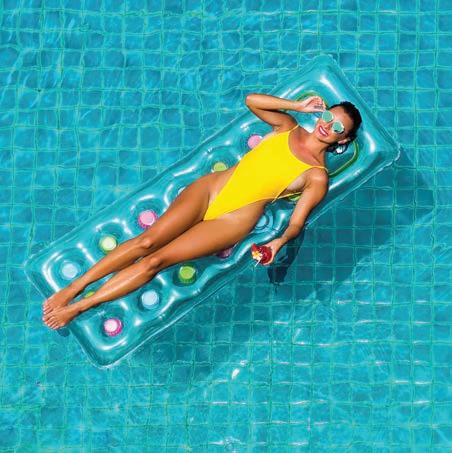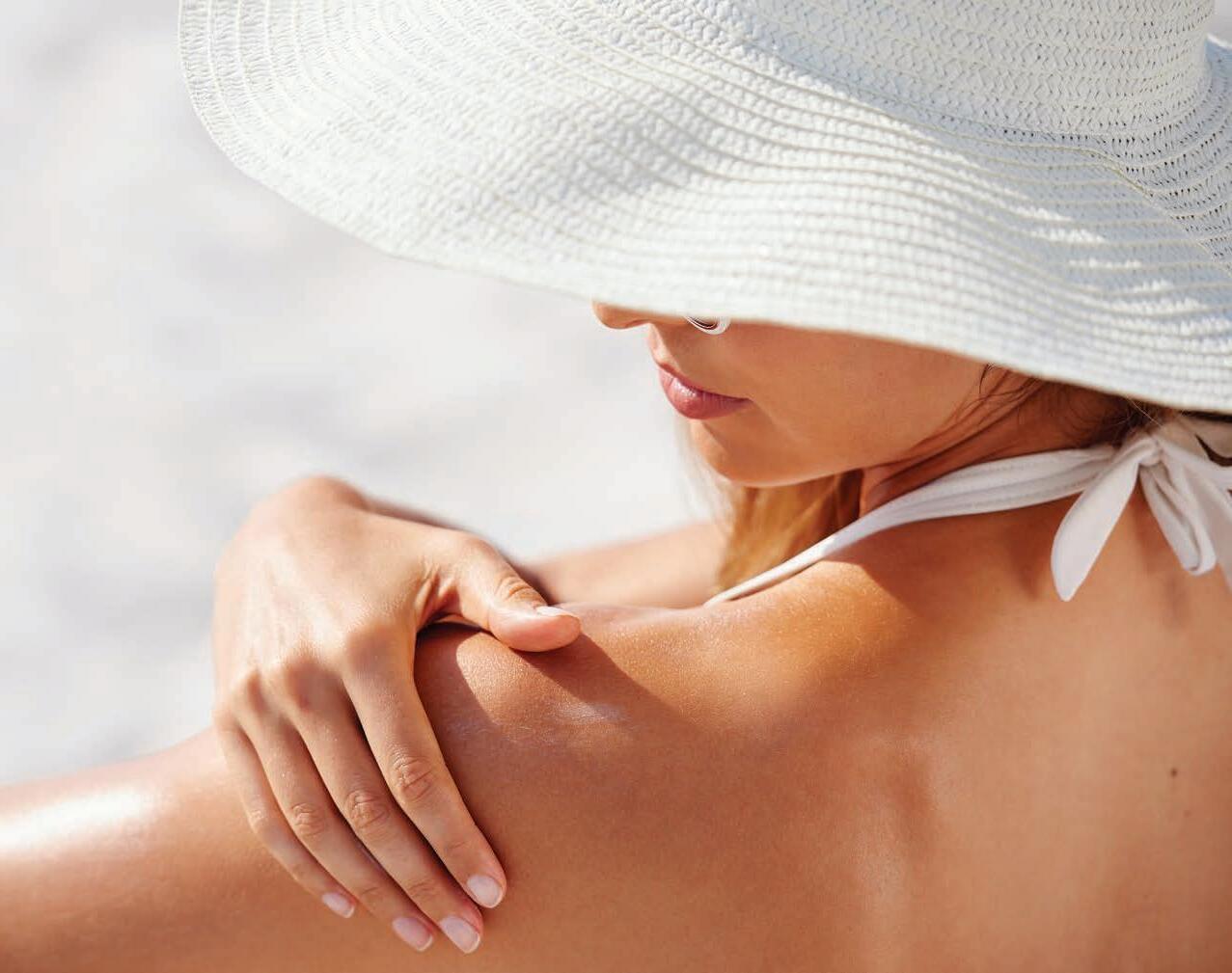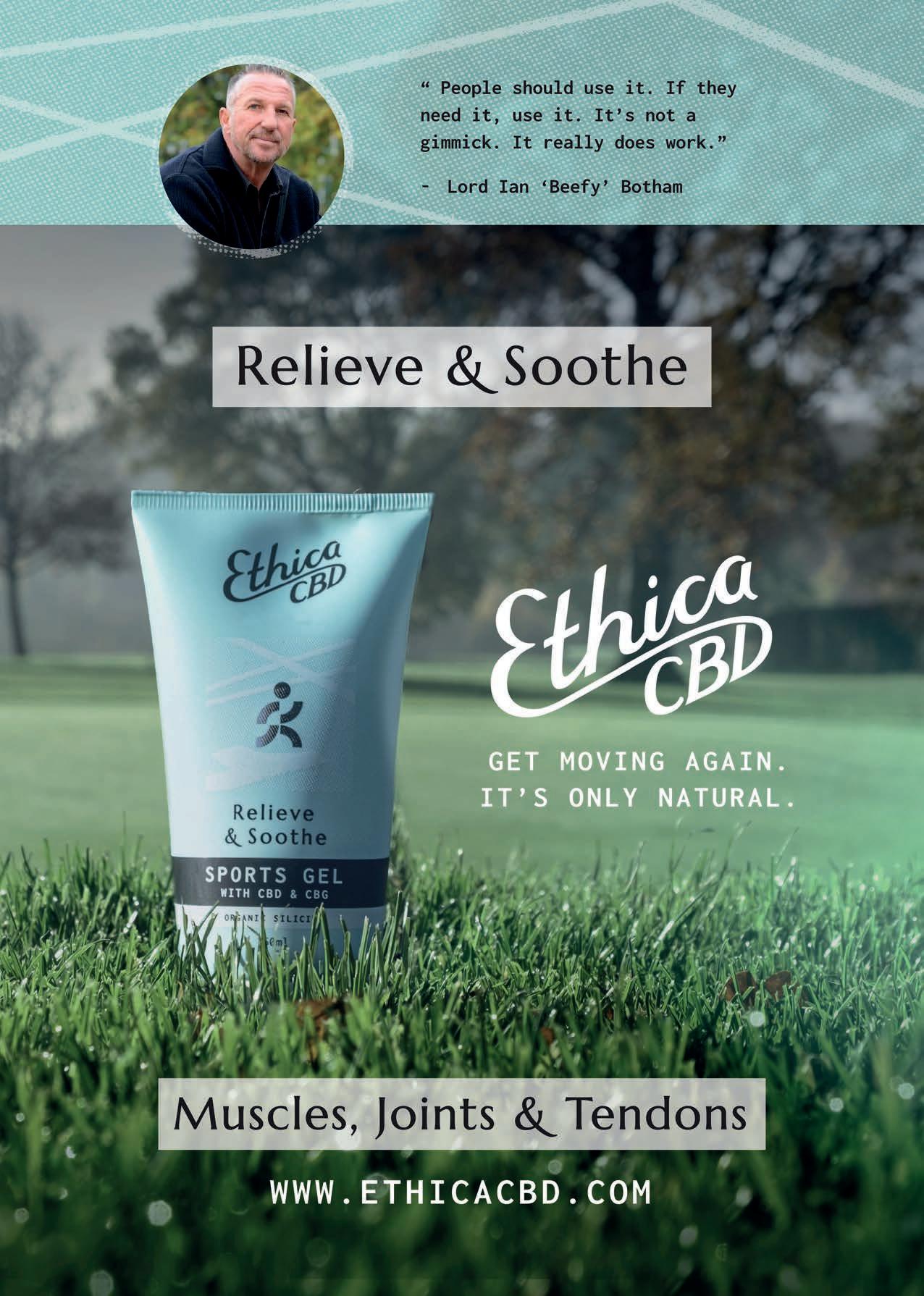
2 minute read
Sunny OUTLOOK
A Sussex-based GP and aesthetic physician o ers up her top summer skincare tips to make
You And Your Body Reap The Bene Ts
By DR SARAH SPENCER
As a doctor, my approach to skincare is often medically led. I like to take a scientific approach to products and “tweakments”, and ensure they are evidence-based.
For me, the warmer weather signals the need to promote sun safety. The old saying, “there is no such thing as a safe tan” is still valid as ever. With fake tan formulations being more sophisticated and easy, there is no excuse!
This may sound dramatic, but the colour change from tanning is not a sign of health, but an indicator skin has been damaged enough to produce melanin pigment to try and shield itself from further harm. UV exposure is the top preventable cause of skin cancer, and sunscreen is one of our biggest defences.
I recommend getting into the habit of using sunscreen daily. However, I often hear patients say they don’t need to, as they don’t sunbathe. But up to 50% of UV exposure can actually be found in the shade, so I still advise everyone to use it: a minimum of SPF 30, broad spectrum to cover UVA and UVB, and one specifically for the face.
My top five tips for sunscreen are:
• Don’t rely on sunscreen in makeup; it must be worn thickly to equal the actual SPF on the bottle.
• SPF isn’t cumulative; two SPF 15 products don’t make SPF 30.
• Don’t decant into smaller bottles for travel; this can cause it to degrade quicker.
• Use enough product; 1-2 finger lengths should be enough for your face and neck.
• Cover forgotten areas – eyelids, ears, lips and neck.
The sun also causes sun spots and other pigmentation, creating uneven skin tone. However, sometimes skin can pigment without the sun, for example, with post-acne inflammation. There are several treatment types and products which can help with pigmentation, including energy-based devices such as laser and IPL. Although e ective, sometimes the reaction to the treatment can cause inflammation and subsequent pigmentation, especially in people of colour, so it is essential to have a patch test.

Product wise, the prescription medication hydroquinone is highly e ective at reducing pigment because it works on a cellular level on the upper layer of the skin to reduce melanin formation. Other ingredients that can also e ectively minimise pigmentation include AHAs, retinoids, and antioxidants such as vitamin C, vitamin E, niacinamide and arbutin, azelaic acid, and kojic acid. Summer is an excellent time to review your regular skincare routine. Consistency in a new routine for 6-8 weeks is ideally needed to see if new products make a di erence.
Our skin produces more oil and sweat in summer, leading to clogged pores and breakouts. Therefore, cleaning your face twice a day with a gentle cleanser that suits your skin type, without stripping the skin of its natural moisture, is crucial.
Exfoliation is an essential step to get rid of dead skin cells and unclog pores, which often gets overlooked. Choose a chemical exfoliator containing ingredients like glycolic acid or salicylic acid, which help remove dead skin cells, control oil production, and prevent breakouts.
Hydrating your skin is essential during summer to combat the e ects of sun exposure and keep your skin plump and moisturised. Opt for a lightweight, oil-free moisturiser that provides ample hydration without feeling heavy on the skin. Look for moisturisers with ingredients like hyaluronic acid or ceramides, which help retain moisture and strengthen the skin’s natural barrier. Everyone’s skin is unique, so adapting your routine to suit your specific needs is important. A personalised regime with a skincare specialist can be an excellent way to ensure your skin stays healthy, protected, and radiant throughout the sunny season.
Dr Sarah Spencer is an NHS and private GP o ering cosmetic injectables, skin and menopause care from Lancing and the Spa at South Lodge, Horsham. See samclinic.co.uk for more details











